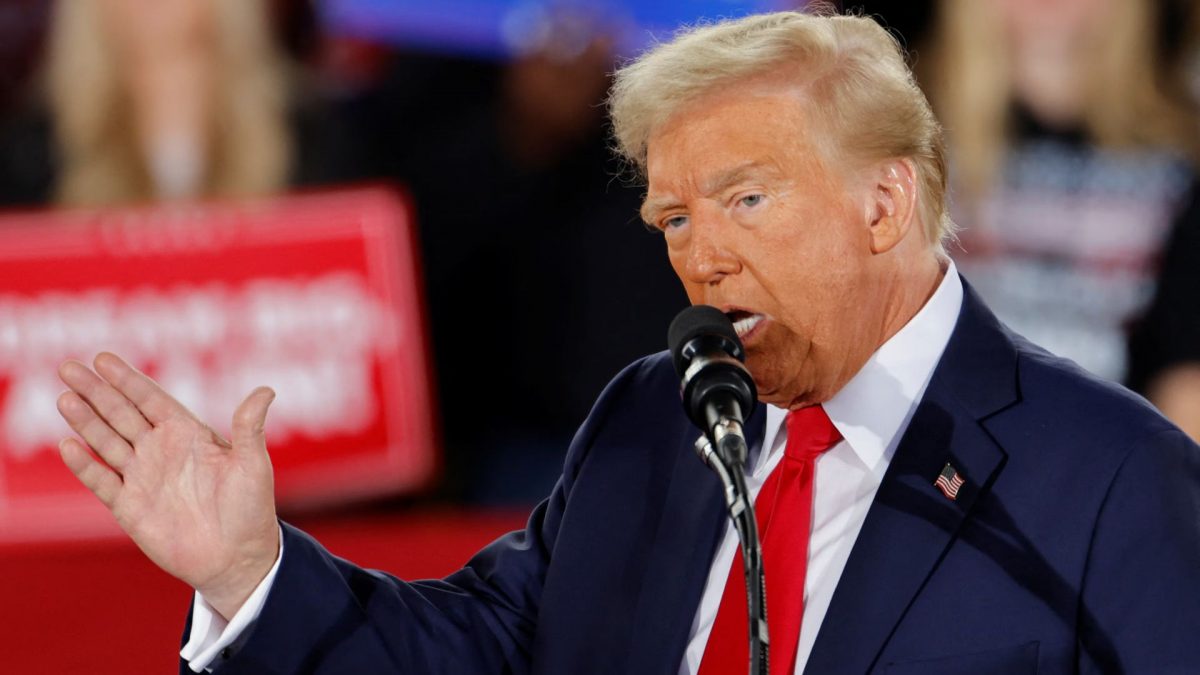Ahead of President-elect Donald Trump’s January 20 inauguration, fear and uncertainty have gripped many US college campuses. Several universities have advised international students to return early from winter break amid concerns over potential immigration policies, including a reinstated travel ban.
With over 1.1 million international students enrolled in US colleges and universities during the 2023-24 academic year, Trump’s campaign promises of hardline immigration measures have sparked widespread apprehension. These measures include expanding his previous travel ban on individuals from predominantly Muslim countries and revoking student visas for “radical anti-American and antisemitic foreigners.” International students, typically on nonimmigrant visas, have no legal pathway to permanent residency in the US.
Pramath Pratap Misra, 23, an Indian student who recently graduated from New York University (NYU) with a degree in political science told CNN that it is a “scary time” for international students. NYU, home to more than 27,000 international students last year, has the largest international student population in the US.
On campuses from New York to California, students are bracing for potential disruptions to their studies and lives. Some universities have recommended students shorten or cancel travel plans outside the US before the inauguration to avoid complications.
Cornell University’s Office of Global Learning urged students traveling abroad to return before the January 21 start of the spring semester. The office cautioned students about the likelihood of a travel ban being implemented soon after inauguration, potentially targeting citizens of countries affected during Trump’s first term, such as Kyrgyzstan, Nigeria, Myanmar, Sudan, Tanzania, Iran, Libya, North Korea, Syria, Venezuela, Yemen, and Somalia. The warning also suggested new additions to the list, possibly including China and India.
At the University of Southern California (USC), which hosted over 17,000 international students last year, administrators recommended foreign students return to the US at least a week before the spring semester begins on January 13. “One or more executive orders impacting travel … and visa processing” may be issued, the USC Office of International Services warned in an email.
Impact Shorts
More ShortsMeanwhile, University of Massachusetts Amherst, in its website urged students to “strongly consider returning to the United States prior to the presidential inauguration day of January 20, 2025 if they are planning on traveling internationally during the winter holiday break.”
“However, given that a new presidential administration can enact new policies on their first day in office (January 20), and based on previous experience with travel bans that were enacted in the first Trump Administration in 2017, the Office of Global Affairs is making this advisory out of an abundance of caution to hopefully prevent any possible travel disruption to members of our international community,” they further wrote.
Trump’s proposed immigration policies have raised concerns beyond travel restrictions. His campaign pledge to conduct “mass deportations” has unnerved many, while his promise to “automatically” grant green cards to foreign nationals graduating from US colleges offers a mixed message. A campaign spokesperson later clarified that only the “most skilled graduates” would qualify, excluding “communists, radical Islamists, Hamas supporters, America haters, and public charges.” This proposal’s future under Trump’s administration remains unclear.
Universities have sought to reassure their international communities. UCLA’s Center for Immigration Law and Policy reminded students that immigration status information is protected and cannot be disclosed without legal authority. “The University also has a strict policy that generally prevents campus police from undertaking joint efforts with federal immigration enforcement or detaining people at the federal government’s request,” the centre stated, reported CNN.
Trump’s campaign rhetoric has fueled anxiety among international students. In October 2023, following the onset of the Israel-Hamas war and subsequent campus protests, Trump vowed to revoke student visas and deport “radical anti-American and antisemitic foreigners” involved in pro-Palestinian demonstrations. He also pledged to reinstate and expand the travel ban implemented during his first term, which targeted predominantly Muslim and African countries. President Joe Biden revoked the ban upon taking office in 2021.
University leaders nationwide are closely monitoring the situation. NYU’s post-election email reassured students of its commitment to “cross-border mobility” and vowed to track immigration-related developments. Meanwhile, other institutions, including the University of Massachusetts Amherst, the Massachusetts Institute of Technology, and Northeastern University, have issued similar guidance, urging international students to return early as a precaution.
“The best way to anticipate or predict what will happen in the second Trump administration is to look at what happened in the first administration,” said Stuart Anderson, executive director of the National Foundation for American Policy, during a post-election briefing. “What we saw in the first Trump administration was an effort to restrict the entry of foreign-born students and workers throughout every category.”
With inputs from agencies.


)

)
)
)
)
)
)
)
)



